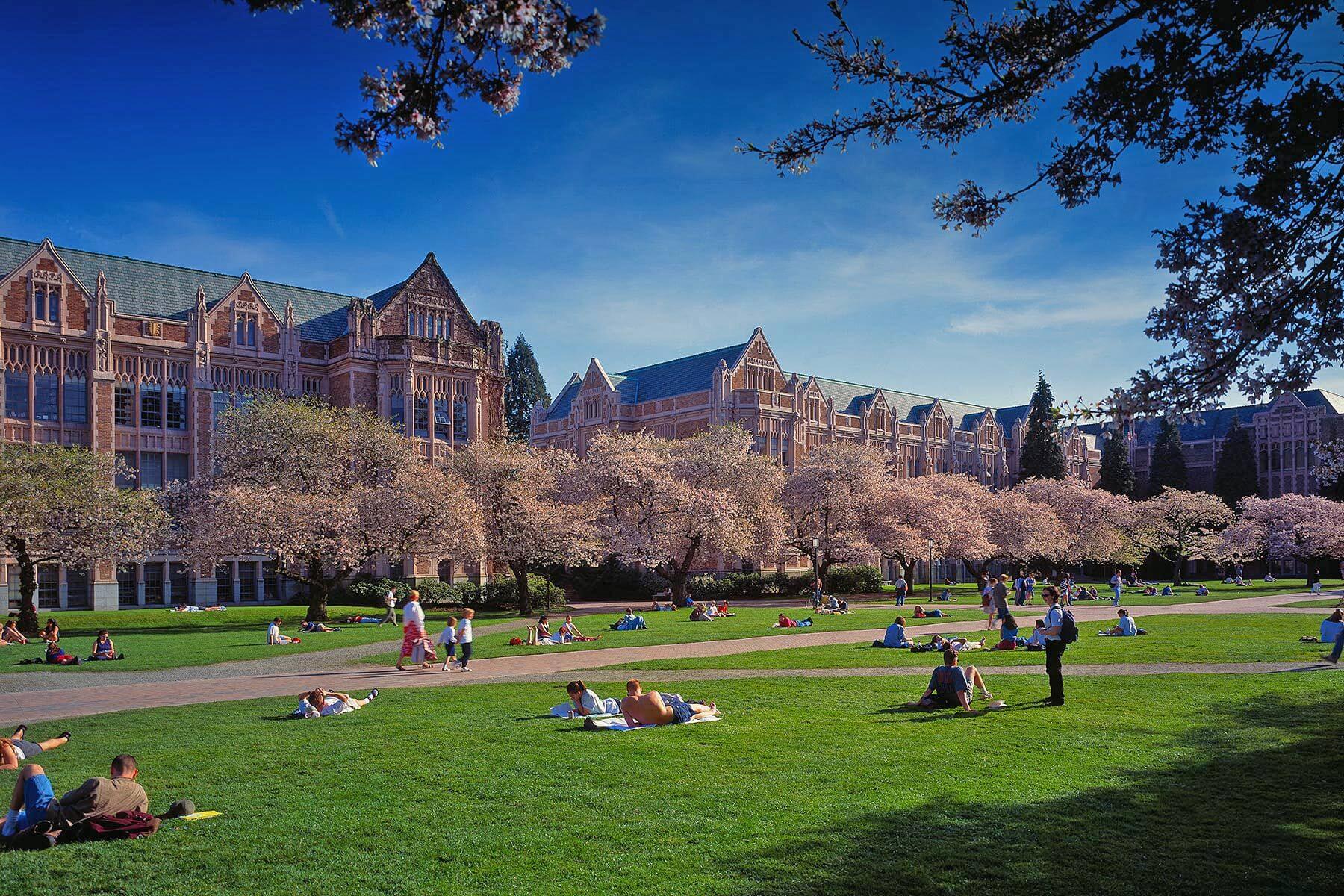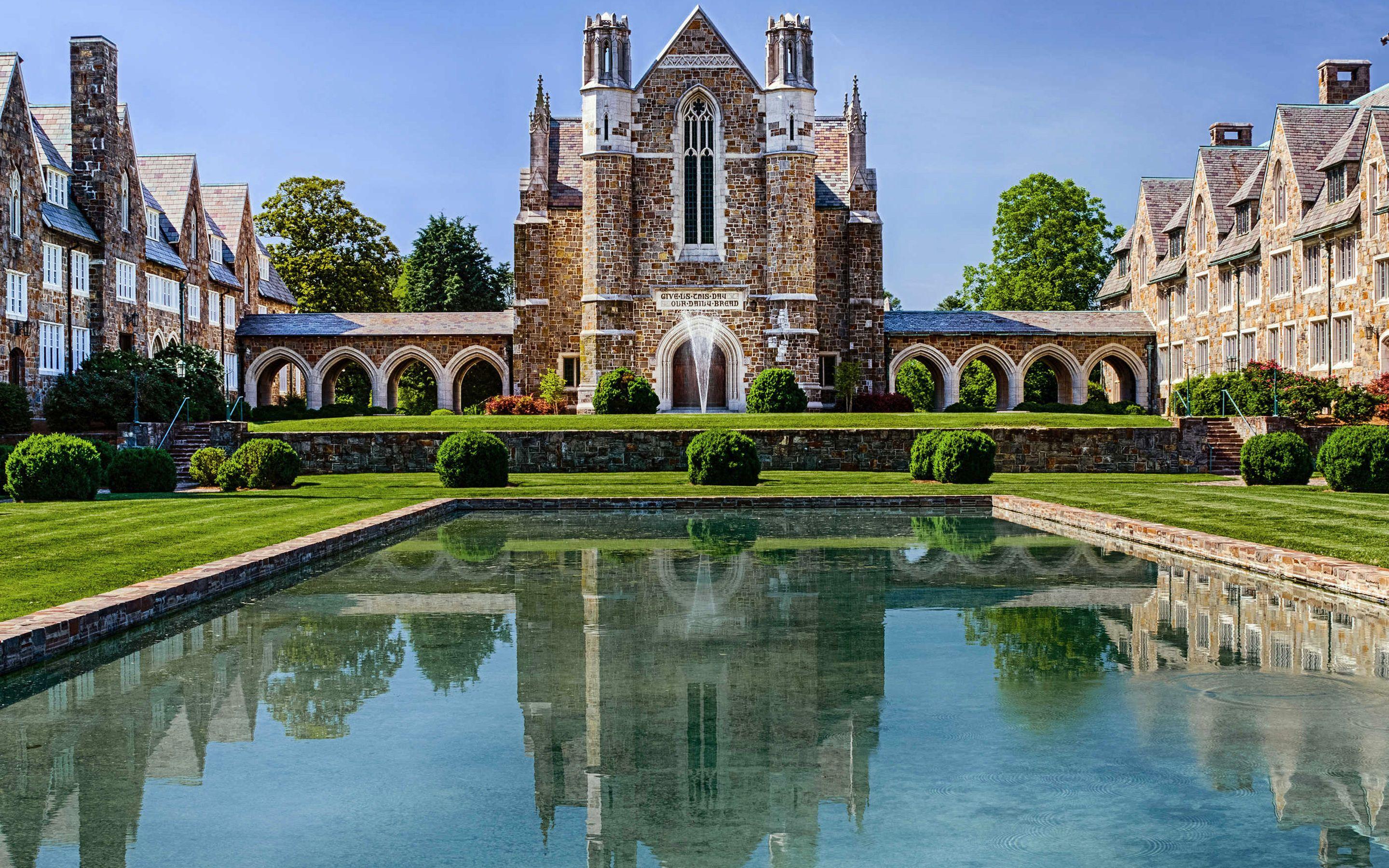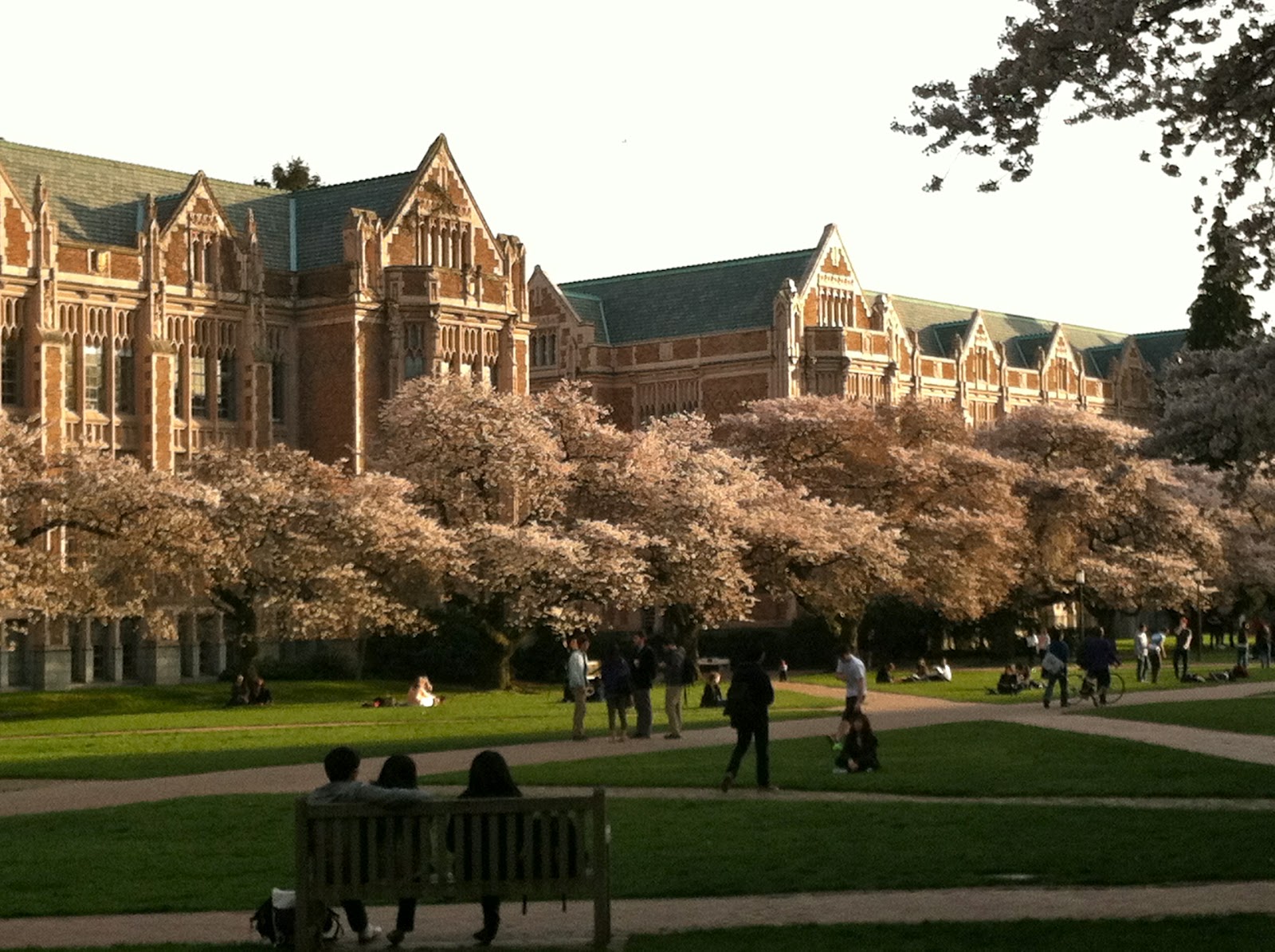University Of Washington - A Look At Student And Applicant Experiences
Thinking about a big university experience, particularly one at a place like the University of Washington in Seattle, can bring up all sorts of feelings and thoughts. People often wonder what it is really like, from the very first steps of applying to what it feels like to spend years there. There's a lot that goes into making up someone's overall view of a school, and that picture is often quite different for each person who has a connection to it. So, we're going to talk a bit about some of the things people have shared about their time with the University of Washington, giving you a chance to see some different perspectives.
When you consider a large institution, especially one that draws a lot of people, you get a collection of many different personal stories. These stories paint a picture, and they can show the ups and downs of what it means to be part of such a community. We'll look at some of the things that come up when people talk about the University of Washington, touching on parts of the application process and even how some individuals have felt about their time there over a longer period. It's really about getting a sense of the human side of things, what people actually experience.
It seems that for many, the path to or through a place like the University of Washington involves quite a bit of personal reflection and a series of distinct moments. From filling out forms to sitting through interviews, each step holds its own weight. And then, once someone is there, the daily life and the academic journey itself shape their opinions. We'll get into some of these specific points, offering a glimpse into what some have shared about their journey with the University of Washington, too it's almost like peeking behind the curtain a little bit.
Table of Contents
- What's it Like to Apply to the University of Washington?
- Considering the University of Washington Application Process
- What Are Some Thoughts on Interviews at the University of Washington?
- Reflecting on Interview Experiences with the University of Washington
- How Does Time Spent at the University of Washington Feel to Some?
- A Six-Year View of the University of Washington
- What Kinds of Questions Does the University of Washington Ask?
- Thinking About Deeper Questions from the University of Washington
What's it Like to Apply to the University of Washington?
When you set out to apply to a school like the University of Washington, there are often specific things you need to do. For example, some years, there are tests that are part of the process, and other times, they might not be needed. It turns out that for a recent application cycle, a certain test, known as CASPer, was not something people had to worry about. This detail can be a big deal for folks getting ready to send in their paperwork, as it changes how they prepare. It's pretty common for requirements like these to shift from one year to the next, so keeping up with the very latest information is, you know, quite helpful for anyone hoping to get in.
Beyond tests, there are usually written pieces that applicants must put together. For the University of Washington, some people have noted that there are four essays that need to be submitted. These aren't just simple forms; they are a chance for applicants to share more about themselves and their thoughts. Also, for those who live in the state, there's a special form about residency that needs to be filled out and looked over by the school. This form is a key part of making sure everything is in order for people who call Washington home. It’s a process that, in some respects, asks for a good bit of attention to detail.
People who have gone through the application steps often share their experiences, and this can be a real help to others coming after them. For instance, some folks have openly thanked others for sharing the questions that were asked in previous years. This kind of sharing makes the whole application experience a bit less mysterious for new applicants. It's a way for people to support each other as they try to get into places like the University of Washington, giving a sense of community even before someone might step foot on campus, really.
Considering the University of Washington Application Process
The application procedure for the University of Washington, as with many schools, involves a series of steps that are quite specific. It's not just about grades; it's also about showing who you are through your writing. The requirement for a certain number of essays, like the four mentioned by some, means that applicants spend a good deal of time thinking about what they want to say and how they want to present themselves. This part of the application is, in a way, a chance for the school to get to know the person behind the scores and transcripts. It's a very important piece of the puzzle for both sides, you know, for the applicant to show their best self and for the school to find the right fit.
Then there's the matter of residency, which can be a significant point for those living in the state of Washington and looking to attend the University of Washington. Having to submit a special questionnaire or form and then having it checked by the school adds another layer to the application. This step is there to make sure that the school is properly identifying those who are from the state, which can sometimes come with different tuition rates or other considerations. It's a necessary piece of paperwork that, basically, confirms a person's connection to the area.
It's also worth noting how much people appreciate when others share information about the application questions. This act of sharing, like when someone posts the essay prompts, really helps to make the process feel more open and less like a guessing game. It means that future applicants can prepare more thoughtfully, rather than being caught off guard. This collective effort to share knowledge makes the application path for the University of Washington feel a bit more manageable for those going through it, honestly.
What Are Some Thoughts on Interviews at the University of Washington?
Interviews are often a big part of getting into many programs, especially at places like the University of Washington School of Medicine. People who go through these interviews sometimes share what they felt about the experience. For some, the interview process at the University of Washington left them with a very particular feeling. One person mentioned that it was precisely the general feeling they got after interviewing there, and that they felt like it was a joke at times. This kind of feedback gives a glimpse into the emotional side of what it's like to be on the receiving end of such a process. It's a rather strong sentiment to express about something so important.
When someone feels that an interview, which is a key moment in their application, was a joke, it says a lot about how they perceived the seriousness or fairness of the situation. This isn't just about answering questions; it's about the whole atmosphere and how the interaction made them feel. It suggests that the experience might not have met their expectations for a formal and respectful exchange. For a school as well-known as the University of Washington, such a feeling from an applicant is, in a way, quite striking.
There are places where people can go to read about others' experiences with interviews at the University of Washington School of Medicine. These "interview feedback review" sections are where applicants can get a sense of what to expect. They can see comments about the questions asked, the people they met, and the overall vibe. It's a way for people to prepare themselves mentally for what might come, based on what others have already been through. This sharing of experiences is, you know, a common practice in the application world, and it helps people feel a bit more prepared.
Reflecting on Interview Experiences with the University of Washington
The interview experience, especially for a competitive program at the University of Washington, can leave a lasting impression. When someone feels that their interview was, as one person put it, like a joke, it suggests a significant disconnect between what they expected and what they encountered. This feeling could stem from various things: perhaps the questions seemed unusual, or the interviewers' demeanor was unexpected, or the flow of the conversation felt off. It's a very personal reaction, but one that can certainly shape a person's view of the institution. It's just a little bit jarring to hear such a strong negative reaction to what should be a professional interaction.
It’s also interesting to consider how these individual experiences contribute to the broader picture of a school. While one person's feeling of an interview being a "joke" is just one viewpoint, it adds to the collection of feedback that others might read. For those looking into applying to the University of Washington, seeing such comments can make them pause and think about what kind of experience they might have. It highlights that even in formal settings, human feelings and perceptions play a really big part in how things are remembered.
The fact that there are specific forums or "threads" where people discuss interview feedback for the University of Washington, like the "University of Washington class of 2029 interview/acceptance thread," shows how much value applicants place on shared experiences. These spaces become informal guides, offering insights that official university materials might not cover. They are places where people can find out about what to expect, or what others found surprising. This kind of community-driven information sharing is, you know, pretty vital for many who are going through the application cycle.
How Does Time Spent at the University of Washington Feel to Some?
Spending a significant amount of time at a university, like six years at the University of Washington in Seattle, can really shape a person's outlook. Someone who went through both undergraduate and graduate degrees there shared some very strong feelings about their experience. They said that the feelings they had about the University of Washington could only be described as extreme disappointment. This is a very powerful statement, especially coming from someone who dedicated so much of their life to studying there. It makes you wonder what could lead to such a deep sense of letdown after so many years. It's a rather striking thing to hear from a long-term student.
What makes this feeling even more notable is that the person mentioned the disappointment was, ironically, not what they might have expected. This suggests there might have been something specific or unexpected that led to this strong negative sentiment. It’s not just a passing thought; it’s a feeling that has grown and settled over a long period. For someone to feel this way after earning both a bachelor's and a master's degree from the same place, it really speaks to a complex set of experiences that shaped their view of the University of Washington. It's almost as if the reality of their time there was quite different from their initial hopes.
This kind of feedback from a long-term student offers a very different perspective than what you might get from someone who just visited or applied. It's a view from the inside, from someone who lived the daily life of the institution for a considerable period. Such personal accounts are, in a way, very valuable because they come from deep personal experience. They can offer a counterpoint to more general perceptions and highlight that even well-known institutions can have aspects that lead to profound dissatisfaction for some who spend a lot of time there, you know, for years and years.
A Six-Year View of the University of Washington
When someone spends six years at a single institution, like the University of Washington, they get to see it from many angles. This person's experience, spanning both their first degree and a higher one, means they had a chance to see how the school works at different levels and through various stages of their own academic growth. The fact that their overall feeling is one of "extreme disappointment" is a really important piece of information. It suggests that over time, their hopes or expectations for the University of Washington were not met, or perhaps even actively challenged by their day-to-day life there. This kind of long-term perspective is, basically, quite unique and carries a lot of weight.
The ironic nature of this disappointment, as described by the student, hints that the issues might not have been obvious from the start, or perhaps they were things that developed or became clearer over time. It's possible that the initial appeal of the University of Washington slowly gave way to frustrations or unmet needs. This isn't just about a single bad class or a difficult professor; it points to a more fundamental issue with the overall experience. It really makes you think about what elements of university life could lead someone to feel such a strong sense of letdown after investing so much time and effort.
This personal account stands as a reminder that the experience of a university can be deeply personal and varied. What one person finds fulfilling, another might find disheartening. For someone who has spent so much time within the walls of the University of Washington, their feelings are a direct result of their lived reality. It offers a counter-narrative to the often-polished image of a large research university, showing that the human experience within these places can be quite complex and, in some cases, surprisingly tough, you know, even for those who stick with it for a long while.
What Kinds of Questions Does the University of Washington Ask?
When applying to a place like the University of Washington, or any higher education program, the questions asked on applications or during interviews can be quite telling. They often aim to learn more about a person's character, their way of thinking, and how they approach different situations. For instance, one question mentioned is about how societal inequities in the U.S. have affected the applicant or people they have worked with. This kind of question shows that the school is interested in a person's awareness of broader social issues and their personal connection to them. It’s a way for the University of Washington to see if applicants think about the world beyond themselves, which is, in some respects, a very good thing.
Another question that comes up is about times or situations where someone has been unsuccessful or failed. This type of question is not about finding flaws, but rather about understanding how a person deals with challenges and setbacks. It gives applicants a chance to show their ability to learn from mistakes, to pick themselves up, and to grow. For the University of Washington, asking about failure means they value resilience and a reflective mindset, which are pretty important qualities for anyone in a demanding academic setting. It’s a question that, you know, makes you think deeply about your past experiences.
These kinds of thoughtful questions suggest that the University of Washington is looking for more than just good grades or test scores. They seem to be seeking individuals who are reflective, socially aware, and able to learn from all aspects of life, including the difficult ones. The application process, through these questions, becomes a way to assess a person's readiness not just for academic work, but for engaging with the world and its challenges. It’s a process that, basically, tries to get to the core of who a person is.
Thinking About Deeper Questions from the University of Washington
The questions posed by the University of Washington during its application process, such as those concerning societal inequities, ask applicants to look beyond their immediate personal lives. They invite people to think about larger issues and how these issues have touched them or those around them. This suggests that the school places value on a broader social awareness and a capacity for empathy. It's not just about what you know, but how you connect with the wider human experience. This kind of question is, in a way, asking for a personal story that links to bigger societal patterns.
Similarly, the request to describe a time of being unsuccessful or failing pushes applicants to be honest and self-aware. It moves away from simply listing achievements and instead focuses on growth and learning from difficult moments. This shows that the University of Washington is interested in a person's ability to reflect on their own shortcomings and to use those experiences as stepping stones. It’s a question that, arguably, gets at the heart of personal development and resilience, which are qualities that really matter in any demanding field.
These types of questions, shared by applicants like those thanked for sharing "this year's questions," are more than just hurdles to clear. They are invitations for self-reflection and a chance to present a more complete picture of oneself. They hint at the values that the University of Washington holds and the kind of students they hope to welcome. It’s a way for the school to see if an applicant's personal values and experiences align with the institution's broader goals, you know, for fostering thoughtful and engaged individuals.

University of Washington Wallpapers - Top Free University of Washington

University of Washington Wallpapers - Top Free University of Washington

University of Washington-Seattle Campus - Unigo.com